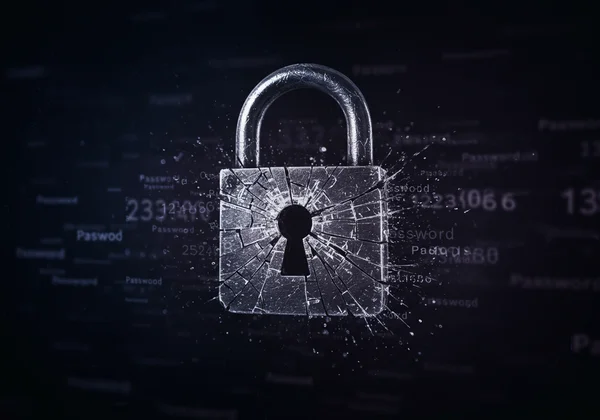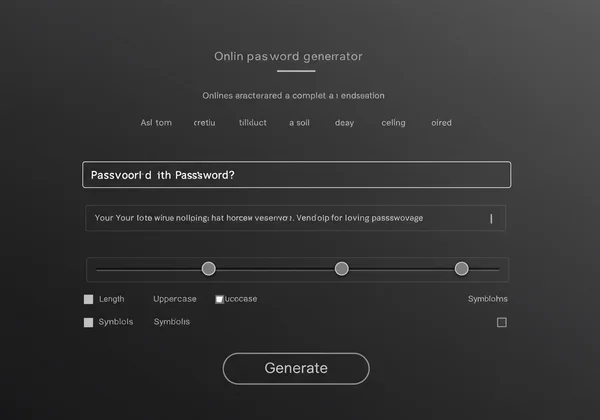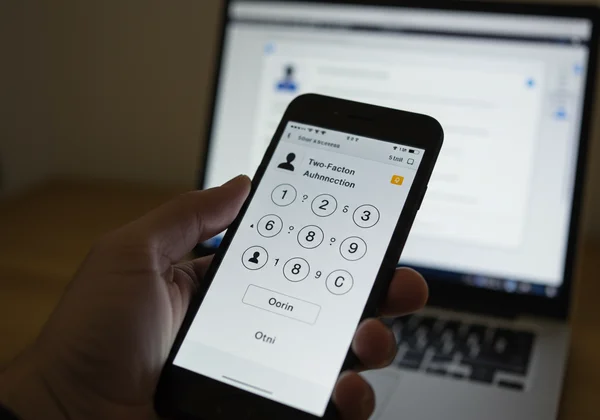Avoid 10 Password Mistakes: Use Our Online Password Generator for Boosted Security
In today's digital world, your passwords are the keys to your kingdom. They protect everything from your social media profiles and private emails to your sensitive financial information. Yet, many of us unknowingly make common password mistakes that leave our accounts wide open to cyber threats. What is a good password that can truly protect you? This guide reveals the top 10 pitfalls users fall into and shows how a secure online password generator is your most essential ally for fortifying your digital life.
This isn't about fear; it's about empowering you. By understanding these vulnerabilities, you can take simple, effective steps to protect yourself. The first step? Stop creating passwords and start letting a secure tool do it for you. You can immediately create secure password and see the difference.
The Top 10 Common Password Mistakes to Avoid Immediately
Are you guilty of any of these habits? Recognizing them is the first step toward building a stronger digital defense. Each mistake represents a crack in your armor that attackers are eager to exploit. Let's review these common password mistakes and why they put you at risk.

Reusing Passwords Across Multiple Accounts
This is perhaps the most dangerous yet common of all weak password habits. When you use the same password for your email, social media, and online banking, you create a single point of failure. If one of these sites suffers a data breach, cybercriminals can use your leaked credentials to access all your other accounts in an attack known as credential stuffing.
Using Predictable & Weak Combinations (e.g., "password123")
Passwords like 123456, qwerty, or password consistently top the list of the most-used—and most easily hacked—passwords. Attackers use automated software to try millions of these common combinations in seconds. Including personal information like your name, birthdate, or pet's name is just as risky, as this data is often publicly available.
Choosing Passwords That Are Too Short or Simple
Many users wonder, "How long should a password be?" The answer is simple: longer is always better. A short, eight-character password, even with mixed characters, can be cracked relatively quickly by modern computers. Each additional character you add increases the password's complexity exponentially, making it significantly harder for brute-force attacks to succeed.
Ignoring Mixed Character Types in Your Passwords
A password that only uses lowercase letters is far weaker than one that incorporates a mix of uppercase letters, lowercase letters, numbers, and symbols (!@#$%^&*). A robust password policy always includes this variety. This complexity is a core principle of how to create a strong password, as it vastly expands the number of possible combinations an attacker would have to guess.
Sharing Passwords with Others (Even Trusted Individuals)
Even with the best intentions, sharing passwords is a significant security risk. You lose control over how that password is stored and used, creating potential vulnerabilities. This is a fundamental rule in any list of password security tips: keep your credentials to yourself. For shared access, use official sharing features provided by the service instead.
Storing Passwords in Insecure Locations (e.g., Sticky Notes, Spreadsheets)
Writing passwords on a sticky note attached to your monitor or storing them in an unencrypted text file on your desktop is the digital equivalent of leaving your house key under the doormat. These methods offer zero protection against physical theft or malware that can scan your computer for sensitive files.
Falling for Phishing Attempts (Even with a Strong Password)
Phishing attacks trick you into voluntarily giving up your credentials. You might receive a fake email from your bank asking you to "verify your account" by logging in through a malicious link. Even the strongest password is useless if you hand it directly to an attacker. Maintaining strong cybersecurity awareness is crucial.
Neglecting to Use Two-Factor Authentication (2FA)
A strong password is your first line of defense, but two-factor authentication (2FA) is your essential backup. 2FA requires a second form of verification—like a code sent to your phone—in addition to your password. This means that even if a criminal steals your password, they still can't access your account without your physical device.
Delaying Password Changes After a Known Data Breach
When a service you use announces a data breach, it is critical to change your password immediately. Waiting gives attackers a window of opportunity to use your compromised credentials. If you reused that password elsewhere, you must change it on all other affected accounts as well.
Over-relying on Browser-Saved Passwords (Without a Dedicated Manager)
While convenient, saving passwords directly in your web browser can be risky, especially on shared or public computers. Browsers are not designed with the same high-level security architecture as a dedicated password manager. A dedicated manager encrypts your passwords in a secure vault, offering far superior protection.
How Our Tool Helps You Fix These Mistakes
Recognizing these mistakes is one thing; fixing them is another. This is where our free and secure strong password generator becomes your most valuable tool. Our tool is designed to systematically eliminate these common vulnerabilities from your digital life. You can generate a password in seconds.

Generating Truly Random & Unique Passwords for Every Account
Our tool instantly creates complex, truly random strings of characters that are impossible for humans to guess. By using our random password generator for each new account, you completely eliminate the risk of password reuse and credential stuffing. Each account gets its own unique, fortress-like key.
Customizing Strength: Length, Character Types, & Real-time Entropy Feedback
You have full control. Our custom password generator allows you to specify the exact length (up to 64 characters) and choose whether to include uppercase letters, lowercase letters, numbers, and symbols. As you adjust these settings, our tool provides real-time feedback on the password's strength, ensuring you always create a credential that meets the highest security standards.
Easy-to-Remember Passphrases for Secure Yet User-Friendly Options
For accounts where you need a balance of security and memorability, our passphrase generator is the perfect solution. It strings together random words to create a long but easy-to-remember phrase (e.g., "Correct-Horse-Battery-Staple"). This method, inspired by Diceware, is recommended by security experts as a highly secure and user-friendly alternative.
Client-Side Generation: Our Core Security & Privacy Promise
This is our most important commitment to you. Every password you create with our tool is generated exclusively within your own browser (client-side). Your password never travels across the internet and is never seen, stored, or logged on our servers. This client-side-only approach guarantees your privacy and makes our tool a genuinely secure password generator.
Beyond Generation: Essential Password Best Practices for Total Security
Creating a strong password is a critical step, but true online security involves a holistic approach. Adopting these password best practices will complement your use of our generator and create multiple layers of defense around your digital identity.

Integrating with a Reliable Password Manager for Secure Storage
A password generator and a password manager are the perfect pair. After you generate a new password with our tool, the next step is to store it securely. A reputable password manager encrypts your credentials in a digital vault, automatically filling them in when you log in to websites. This eliminates the need to remember or type complex passwords.
Enabling Two-Factor Authentication (2FA) on All Supported Services
We mentioned it before, and it bears repeating: enable 2FA wherever it's offered. It's one of the single most effective security measures you can take. It acts as a powerful safety net, protecting your account even if your password is compromised.
Performing Regular Password Audits and Updates
Make it a habit to periodically review the security of your most important accounts, such as your primary email and online banking. Check for old or weak passwords and update them using a strong, newly generated one. This proactive maintenance helps ensure your defenses remain strong over time.
Stop Common Password Mistakes & Secure Your Digital Life Today
You now have the knowledge to identify and correct the most common password mistakes that leave millions of users vulnerable every day. The solution is not to create more complex but guessable passwords on your own; it is to adopt a new, more secure habit. Let a trusted tool handle the complexity for you.

By leveraging the power of a secure, client-side online tool, you can create unique, uncrackable passwords for every account in seconds. Take the first step towards a safer digital life right now. Try our free tool and experience the peace of mind that comes with truly strong security.
Frequently Asked Questions About Password Security & Online Generators
How to create a strong password that's truly secure?
A strong password has four key traits: it's long (16+ characters is ideal), complex (uses uppercase, lowercase, numbers, and symbols), unique (used for only one account), and random (lacks predictable patterns or personal information). The easiest and most reliable way to achieve this is with our secure generator.
Are online password generators safe to use for sensitive accounts?
The safety of an online password generator depends entirely on its architecture. Many generators create passwords on their server, which poses a potential risk. Our generator is different and fundamentally safer because we operate on a "client-side only" model. This means the password is created directly on your device and is never transmitted to us, ensuring complete privacy and security.
How long should a password be for maximum protection?
While many sites require a minimum of 8 characters, modern security standards recommend at least 16 characters for critical accounts. According to security experts, password length is one of the most important factors in its strength. Longer passwords are exponentially more difficult for attackers to crack.
What is considered a "good" password in today's digital landscape?
A "good" password is one that a machine generates and a password manager remembers. It should be a long, random string of characters that has no connection to you or any dictionary words. Alternatively, a long passphrase of four or more random words can also be considered a very good password.
Can I remember the complex passwords generated by your tool?
You shouldn't even try to! The human brain is not designed to remember long, random strings of characters. That's why using a password manager is a crucial part of modern security hygiene. Generate a strong password with our password generator online, then save it directly into your secure password manager. For an easier-to-remember option, use our passphrase feature.